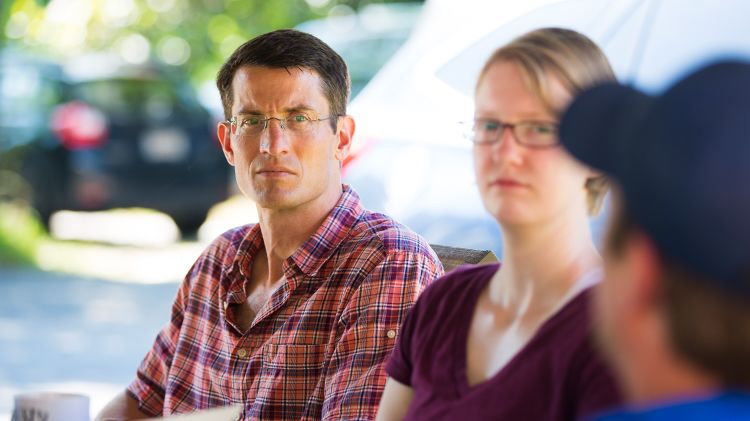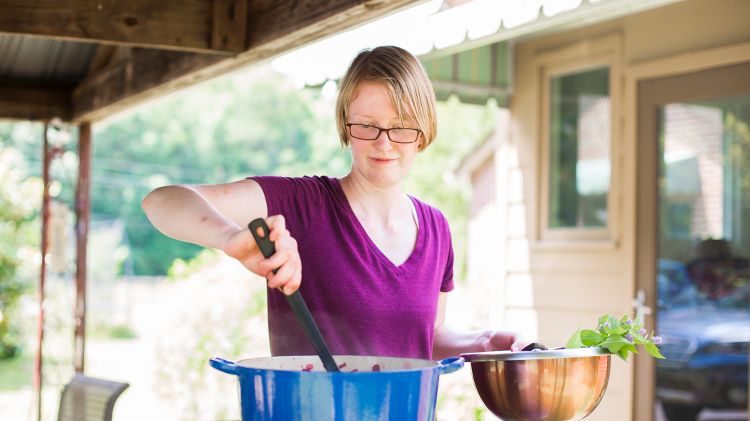OUR SUSTAINABLE FUTURE: FOOD

Sustainability Spotlight: Faculty

MINDFUL EATING
Jonathan Crane, Raymond F. Schinazi Scholar in Bioethics and Jewish Thought
Jennifer Ayres, Associate Professor of Religious Studies
What goes into your food extends far beyond its ingredient list. Two Emory associate professors plate up the moral, ethical, and spiritual components of how and what we eat.

Jonathan Crane, Raymond F. Schinazi Scholar in Bioethics and Jewish Thought
“Religious traditions have tried-and-true wisdom through thousands of years of experimentation that is corroborated by contemporary, cutting-edge science,” says Jonathan Crane, Raymond F. Schinazi Scholar in Bioethics and Jewish Thought at the Emory Center for Ethics. In his book Eating Ethically: Religion and Science for a Better Diet, Crane reframes our role in the food chain from consumer to eater.
“Consuming originally meant to squander and waste,” he says. “That’s how the contemporary American food landscape teaches us to eat, in a way that’s inherently wasteful of natural resources and damaging for our bodies. By paying attention to our eating practices, we reorient ourselves toward internal cues, rather than external ones. And as eaters, we can better appreciate what needs to be sustained individually, and collectively, to eat.”
Crane regularly brings students to Emory’s Oxford Organic Farm for hands-on learning opportunities.

Jennifer Ayres, Associate Professor of Religious Studies
Christian principles underpin the approach to ecology taken by Jennifer Ayres 07G, associate professor of religious education for Candler School of Theology. “Christians are called morally to live gently on the Earth and to protect what many Christians call God’s creation,” she says. “In Christianity, the Eucharist has a very communal meaning. If we reimagine our food production and consumption in relationship to this concept, it deepens our experience of that central religious practice and gives power to the work we do in the world to address imbalances in the food system.”
It’s not just a matter of eating lower down the food chain, Ayres says, but cooperatively engaging in food production. “Co-ops teach sustainable agricultural practices, while nurturing the dignity and agency of people when they learn how to provide food for themselves and their communities.”
—Kristin Baird Rattini

Jonathan Crane, Raymond F. Schinazi Scholar in Bioethics and Jewish Thought
Jonathan Crane, Raymond F. Schinazi Scholar in Bioethics and Jewish Thought

Jennifer Ayres, Associate Professor of Religious Studies
Jennifer Ayres, Associate Professor of Religious Studies

Want to know more?
Please visit Emory Magazine, Emory News Center, and Emory University.

